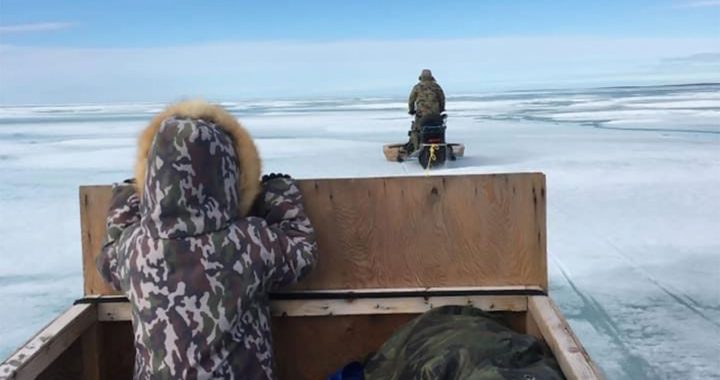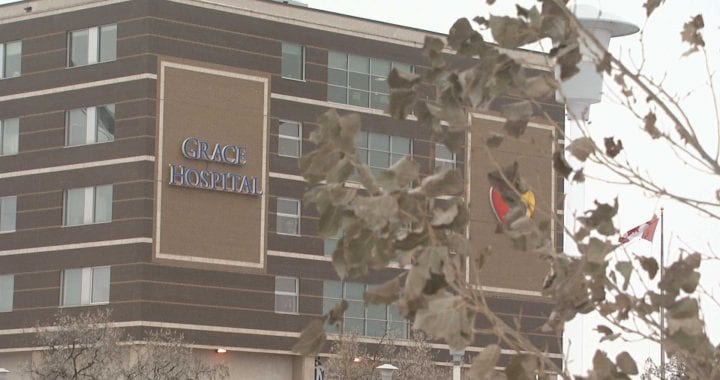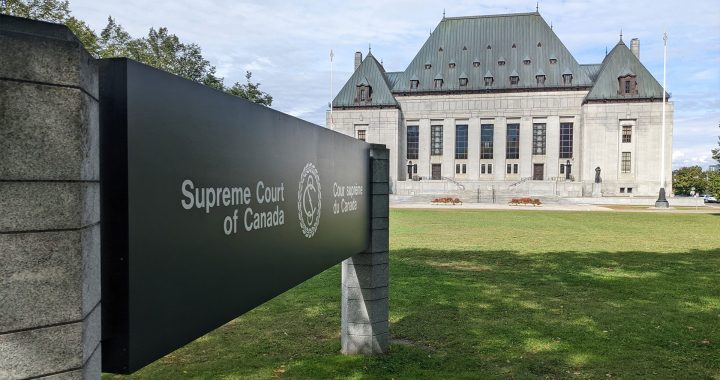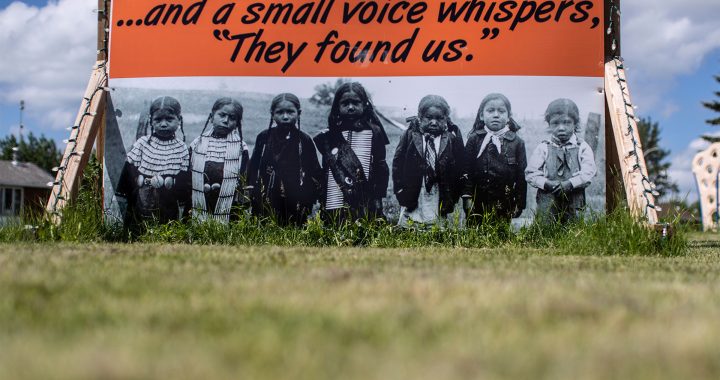
Brett Forester
APTN News
The Unist’ot’en camp may be next as the RCMP enforces an injunction against Wet’suwet’en hereditary chiefs and their supporters on the Morice West Forest Service Road in British Columbia.
Twenty-one people have been arrested at the time of writing.
“6 persons were arrested on Thursday morning. These persons were arrested at the 39.5 km mark all have been released from custody, without charges or conditions. 4 more persons were arrested at the 44km mark on Friday, and 11 were arrested on Saturday after the exclusion zone had been pushed back to the 4km mark after blockades and items placed on the road damaging police vehicle tires,” Cpl. Chris Manseau, an RCMP communications officer, explained by email.
Federal police spent the last four days moving down the road arresting people and dismantling obstructions at the 27, 39, and 44 kilometre points on the road so Coastal GasLink (CGL) can build a $6.6-billion liquid natural gas pipeline through the territory.
The completed project would carry fracked natural gas to Kitimat on the coast, where it would be exported to markets in Asia.
Hereditary chiefs representing the five Wet’suwet’en clans oppose the project, but all elected Indian Act governments have signed agreements that express support.
The next site on the RCMP’s path is the Unist’ot’en camp at the 66 kilometre mark.
On his way to the four kilometre mark, Hereditary Chief Smogelgem, also known Warner Naziel, discussed the raids.
“There was a lot of violence that happened on our front lines, violence that came from the state. Our people have been peaceful the entire time,” he said.
On Sunday, the camp reported officers and industry approaching as well as a helicopter flying over at 11:00 am PST.
We have reports of a large convoy of RCMP and industry working up the road from @Gidimten toward #Unistoten. 2 bulldozers, 1 plow, 2 large cats, 1 large white RV, 1 ambulance, 7 pickups.#WetsuwetenStrong
— Unist'ot'en Camp (@UnistotenCamp) February 9, 2020
APTN News asked Manseau to confirm this report, but he has not responded. Nor did he respond when asked if Unist’ot’en camp will be subjected to the injunction enforcement.
Manseau said another press release was coming, but this was not received by publication time.
On Saturday, Unist’ot’en camp released a statement on Facebook calling for the RCMP not to evict people from the healing centre, which is a main component of the camp.
“Even under colonial law, the RCMP cannot enter or search our Healing Centre without a warrant,” the statement said.
“People living and receiving treatment there are not in violation of CGL’s injunction, nor is the Healing Centre itself in violation of the injunction. The Healing Centre exists to support the self-determination and healing of our people and is unrelated to CGL’s work and the injunction.”
In a Saturday update, police said officers arrived at Unist’ot’en by “alternative means of travel” because support beams on the Lamprey Creek Bridge “appear to have been cut.”
Police said they are launching a criminal investigation into the matter. APTN is unable to independently verify the damage to the bridge.
The RCMP said officers were at the camp to “facilitate conversation,” but left an hour later after this was unsuccessful.
Watch: those who were arrested speak out
Freedom of the press
Due to an exclusion zone established at the 27 kilometre mark, few media are present to document the enforcement. Harsh criticism ensued when reports emerged that police threatened to arrest journalists observing the raid.
Journalists were not arrested. They were detained, forced to relocate against their will, and prevented from documenting police conduct.
“Throughout the enforcement of CGL’s injunction, media and legal observers were illegally corralled and threatened with detention and arrest for doing their jobs,” said Unist’ot’en camp in the release.
The Canadian Association of Journalists (CAJ) issued a statement calling on media to “continue to document police interference and misuses of power, including noting names and badge numbers.”
“Yesterday the RCMP promised to respect media rights, but today they continue to abuse their powers and blatantly disregard the law in a way that is previously unheard of in Canada and unthinkable in a democratic country,” said president Karyn Pugliese in the Saturday release.
The B.C. Civil Liberties Association said it too was “alarmed.”
“We emphasize that even in areas where injunctions are being enforced, the courts have upheld the constitutionally-protected freedom of the press” the organization said in an open letter Thursday.
Unist’ot’en camp’s statement also criticized “use of excessive force by the RCMP, including the unnecessary use of heavily armed tactical teams deployed by helicopters to surround Gidimt’en camp at 44 km, use of snipers, and deployment of K9 units.”
RCMP’s account differs. Police said that, despite the large deployment of officers, “a minimal amount of force was required to support the arrests or removal of individuals from within the exclusion zone.”
APTN asked Manseau to comment on this discrepancy, but he did not respond.
‘Not a protest or demonstration’
On its website, Unist’ot’en camp says it’s “not a protest or demonstration,” but rather a reoccupation of traditional Wet’suwet’en territory.
It claims to be an assertion of “jurisdiction and our inherent right to both give and refuse consent” under precolonial governance systems.
These traditional systems are complex.
The Wet’suwet’en Nation consists of five clans and 13 house groups. There are six Indian Act bands, five of which have signed on to the pipeline.
The feast hall, or potlatch, is the primary institution of governance. It’s where decisions are made and the investiture of hereditary titles takes place.
Under the traditional system, certain hereditary titles confer exclusive territorial rights to the title holder, according to anthropologist Antonia Mills.
Mills was hired by Wet’suwet’en hereditary chiefs in the late nineties to study their traditions and offer expert testimony as part of the case commonly called Delgamuukw.
She argued that some titles are over 5,000 years old.
For instance, Goolaht is “among the world’s oldest recorded continuously held titles to confer exclusive property rights,” she wrote.
Read more:
RCMP move in on Wet’suwet’en territory in early morning raid
‘We’ve got a real divide in the community:’ Wet’suwet’en Nation in turmoil
The Delgamuukw case concerned the question of Aboriginal title.
However, B.C. Supreme Court rejected Mills’s evidence and the evidence of Wet’suwet’en and Gitxsan chiefs.
In 1991, Judge Allan McEachern ruled Aboriginal title had been extinguished.
The Supreme Court of Canada disagreed. The high court said that Aboriginal title is an ancestral right protected under Section 35(1) of the Constitution. However, a new trial was ordered. It never took place.
Wet’suwet’en have never signed a treaty or ceded their territory to the Crown.
The hereditary chiefs say, under Wet’suwet’en traditional law, the pipeline requires their permission, which they have no plans to grant.
This has created division within the Wet’suwet’en Nation, since five elected governments have signed benefit agreements supporting the project.
APTN has spoken with community members who support the project because of the economic benefits it promises, though the numbers for and against the pipeline are not altogether clear.
When Justice Marguerite Church granted the injunction, she said that even if Wet’suwet’en law did impact Canadian law, it wasn’t clear to her if Wet’suwet’en law had been followed or not.
Correction: A previous version of this article used the word “village” to refer to the Unist’ot’en camp. It is a camp with a healing centre, not a village.










# Wet’suwet’en strong! Stop killing mother Earth!